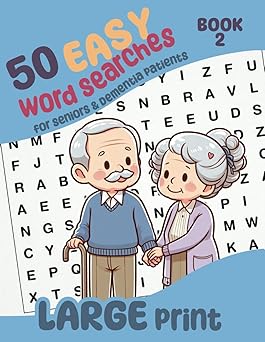Physical Exercise for Cognitive Resilience
Physical exercise increases blood flow around the body and to the brain. This can help to improve cognitive function, and by improving balance and coordination, also help protect against falls.
9/17/20253 min read
Physical exercise is a powerful tool for supporting brain health in everyone, and elders with dementia are no exception. Along with the numerous physical benefits of physical exercise for elders with dementia, regular bodily motion can enhance mood and increase the blood supply to the brain, which can help to slow cognitive decline. For dementia patients, exercises (appropriate to the individual’s condition and capabilities) can encourage cognitive resilience, maintain mental sharpness, and promote emotional balance.
Below are some practical and dementia-friendly exercise ideas that caregivers and family members can incorporate into a daily routine.
Walking for Mind and Body
Walking is a low-impact, cost-effective, and accessible exercise that stimulates the brain by increasing oxygen flow around the body. It reduces stress and helps the lymphatic system to function, removing waste from cells. A short 10 to 15-minute stroll around a familiar park or neighborhood can lift mood and stimulate the mind. For safety and comfort, choose an even and flat route and walk alongside the dementia patient so you can discuss the scenery and wildlife, encouraging the senses and stimulating the mind.
Chair-based dementia exercises for accessibility
For elders with mobility issues, chair-based exercises are a great option. Simple movements such as seated leg lifts, arm circles, and gentle stretches will help with circulation and the flow of blood and oxygen around the body and the brain. A basic 10-minute routine alternating leg lifts on each side and reaching arms upwards while counting aloud will support cognitive health and maintain focus.
Yoga and stretching for dementia patients
Gentle yoga stretches and exercises can help to maintain focus, improve mood, and assist with mobility. All of these benefits are great for dementia patients. Easy yoga poses, suitable for dementia patients, include seated forward bends and arm stretches. A number of yoga poses can be modified and simplified to match the abilities of the patient. Clear, calm instructions and focusing on the breath will help to maintain a peaceful state and avoid frustration. Mindful, deep breathing will help to calm the mind while stimulating the lymph system. Always do this within the patient’s abilities and in a safe environment to avoid any mishaps.
Start with Short sessions in any of these dementia-friendly activities, and tailor them to energy levels, abilities,and interests. Someone who enjoyed music and dancing in their younger years will be more inclined to participate in a musical or rhythmic activity for dementia patients.
Always maintain a positive atmosphere and offer praise. Aim for participation rather than perfection. Patients with dementia with more severe limitations should consult a doctor to decide if a routine is suitable.
Regular mental and physical exercise will make a meaningful difference to elders with dementia and foster a bond between caregiver and patient or family member. Remember to make it an enjoyable, no-pressure experience for all.






Useful Resources
Easy Nature Wordsearch
An easy, large print wordsearch, suitable for elders with dementia or other forms of cognitive decline.
A dementia-friendly wordsearch book with a range of simple themes.
An easy word search book with Christian-themed puzzles. Large print and dementia-friendly.
Easy Wordsearch
Easy Christian Wordsearch
Connect
© 2025. All rights reserved.




